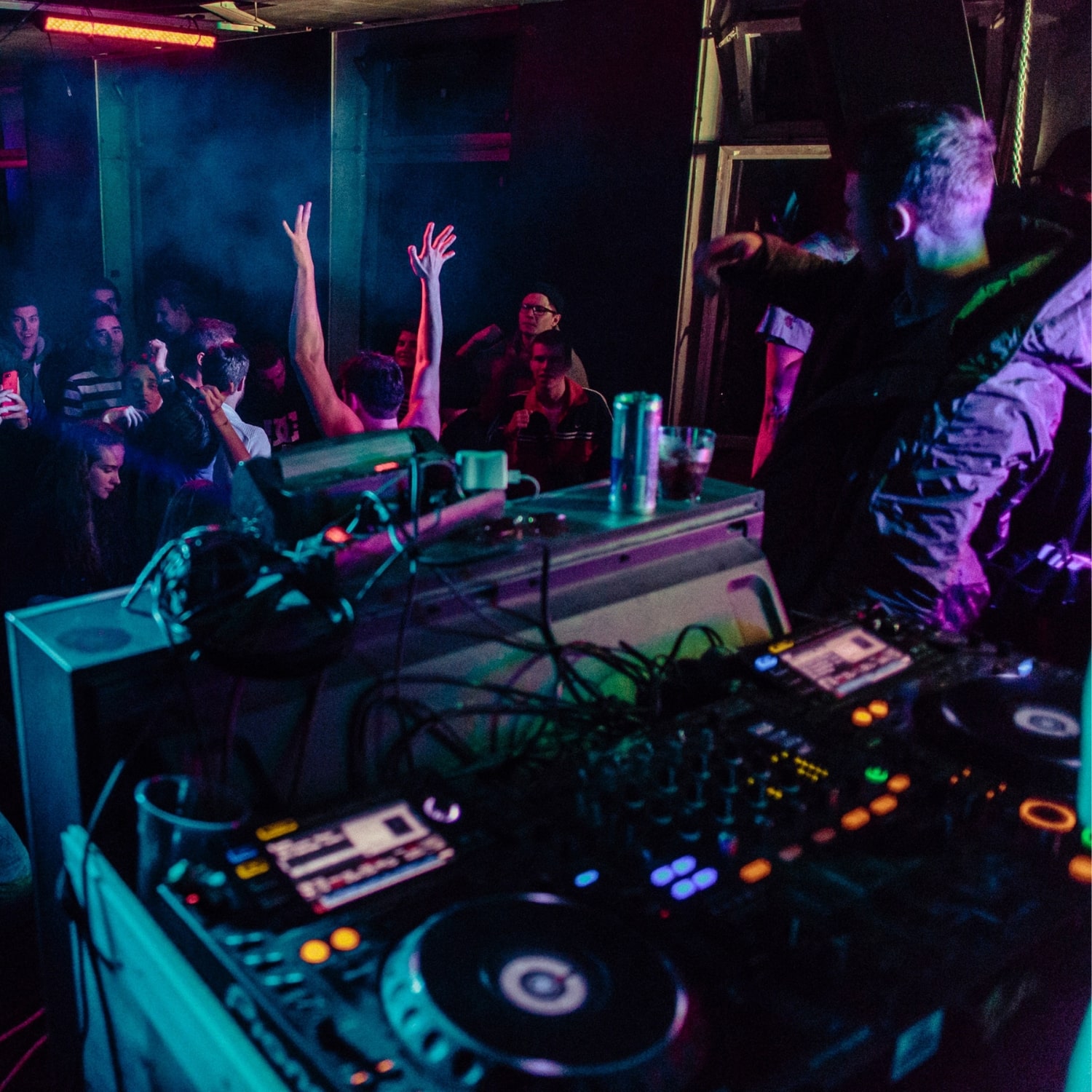Becoming a professional musician
Back in 2002, I received a government grant for a European tour. For me, this was the beginning of the process of becoming a professional musician. A lot of Canadian arts and music are funded by the government; if you’re organized and a resourceful, you can get funding. I was lucky enough to be one of those people. Every country has their own grant programs and some are better than others, but I know there are many other places in the world where governments offer this type of financial support; it’s simply a matter of knowing where to search.
That said, this opportunity was served to me on a silver platter, and without it I’m not sure I would have ever been keen enough to make the jump from semi-pro to full-time musician. Many people ask me how I did it, and while I don’t really like to tell the story or explain to people how they themselves can do it, I thought I’d discuss it in a blog post.
The main reason why I’m cautious to talk about this topic is because the music business world is extremely spontaneous and unpredictable; I could tell you step-by-step how I think you can “make it” but it still might not happen. Same goes for how to get signed to a label or how to write a “hit”. There are steps you can follow, but luck is usually the deciding factor.
However, networking quite heavily might influence your chances by creating more opportunities for luck.
A student I was mentoring for a few months once said to me “I work about 5 hours a day on music and I still don’t get noticed or get signed…” My response was that the harsh reality is that the world doesn’t care what you do, how you do it, or why you do it. Things happen or they don’t, and you have very little control over that. Unfortunately this response sort of ended our working together; I had broken his hopes.
I’m not trying to be pessimistic but I really try to invite people to be as realistic as possible about music to remain mentally sane, and not burn out like I did in 2007. Working in the domain of “The Arts” demands a lot of resilience and it’s always an intense roller coaster ride.
I know I might sound grumpy or negative, but I also have some good news: I’ve seen many people succeed and many fail, and I have noticed recurring characteristics that can make a person succeed or fail. In an effort to share with you the most helpful points, I’ve summarized these characteristics below.
With regards to who I’ve seen succeed directly, I hate to name drop, but I can tell you I’ve seen artists like Maayan Nidam, Ion Ludwig, Seth Troxler, Sean Reaves, Deadbeat, Akufen, Guillaume and The Coutu-Dumont, Mike Shannon, Lee Curtiss, Ryan Crosson, and even Luciano, who I first saw in Barcelona while he was still relatively unknown and have followed him since, grow exponentially.
So, what do some of these people who have succeeded have in common?
- They had a financial back-up plan. Some people don’t have a financial plan and in that case, they are totally okay with living poorly to be able to do what they love. I’ve been there. However, I was fortunate to have two back-up plans for money: a strong professional background with a university degree in the social sciences and teaching. In times where I wouldn’t tour, I would teach part-time in schools or in private. Plus my parents were totally okay with helping me with some investment for my studio. But at first, I hated the struggle. If you want to become a professional musician, know that they first years are really, really rough, financially speaking. You’ll need to be working part-time at something you know you can do for money. Many DJs/producers I know work at restaurants, and honestly not making music all the time is actually a very good thing.
- They were ready to move to get closer to opportunity. I’d say that pretty much all artists I know who went big moved to where they needed to be. In the early 2000s, we saw a huge exodus of producers worldwide to Berlin because it was cheap but also a huge hub for opportunity. Everyone was there. When Richie Hawtin moved there around that time, it was clear that it was the thing to do. Honestly, if you’re physically far from opportunities, you’re making it harder on yourself. The chances of becoming a “Soundcloud rapper” are probably less than one in a million.
- They built a solid portfolio of work. If you’re a DJ, your goal is probably to get the most prestigious gigs in the scene you’re in. Find your niche, see who are at the top and where they play, then use that as your model. If you’re a producer, find people who could be similar, then see who they work with, what they use and try to see if you can emulate. It’s not very original and it might not work but you’ll learn in the process and understand what you should do going forward.
- They understood they couldn’t do it alone. Again, if you can be physically close to all your influences and scene, it can be a very strong move. For instance, in Montreal for a while a lot of producers were hanging out a local bar called Laika; going there once a week was important to hang out, connect, share questions, hear people’s point of view, all things that changed my life personally. Now I get the same thing with MUTEK; producers from all over the world attend. With a bit of luck, I cross people’s paths and connect with them. It’s also important to be in these types of places to be available to people who want to reach out to you. Even if it doesn’t lead to anything, it can sometimes bring you opportunities you didn’t expect.
- They understood what they did best and used that skill as leverage. Whatever you want to do in the world of arts, it’s essential to understand that it’s not because you’re passionate about something that it means you have a talent for it. Same goes for if your friends say you’re good at it. Professional validation is fundamentally important. You might have a special talent that many other people can benefit from. Maybe you’re amazing with visuals or sound design. Perhaps you’re strong in understanding how to patch cables and you can make modular synths work amazingly. In reference to my previous point, find what you do best and connect with people who recognize, appreciate, and need your skill.
- They were/are outgoing. I’ve never seen someone that is not outgoing succeed. For instance, I first met Seth in 2006 in Detroit. After spending a few minutes with him, it was clear that this guy was someone everyone would love. Natural charisma, funny, super friendly and also, talented. But what if you’re not outgoing or remain unknown, like Burial? Yeah… right. Burial had to connect with someone to get signed. It didn’t just happen magically. Connecting is important and essential. You create more opportunities for things to happen.
- They never stopped looking for opportunities and said yes as much as possible. Follow your model. Be in the places that person might go to, and connect with people there. Being a social butterfly can bring you into contact with people who share the same dreams. The number one myth people think about with regards to music is “competition”, and they may become selfishly competitive themselves. If you understand that competition is just an illusion, you’ll want your peers to succeed too because if they do, everyone wins. Trust me on that one.
- They were reactive and responsive. When you work with people, don’t stall on communication and action. Act quick, almost impulsively. Make things happen. Work on tons of projects, collaborate, and never think of the outcome as in a success or failure. Make sure you don’t go broke in the process, but focus on making quality projects. If you become prolific in creating amazing things and make them for a while, it is almost impossible that no one will hear about one of them. But this takes time and resilience.
- At times they compromised, but kept their integrity. This means, yes, you have to do some things you don’t want to do.
So how did I, Pheek, do it?
- I took on a few model artists and labels as my mentors.
- I connected with many of them at MUTEK. I was never pushy. I was more interested in having them know who I was and what I did. No one likes opportunists or pushy behaviour. You want to befriend your mentors with no expectations.
- Eventually I became known for the music I was doing and started to be in demand because I was releasing music people liked.
- I was saying yes to almost everything that made sense for me.
- I understood that downtime or lack of interest in my work didn’t mean I wasn’t in demand, but that I needed to go back to the studio and work harder.
Nowadays, I know that my personal leverage is in audio engineering, understanding people’s ideas, and helping their music make more sense. This now also my backup plan. I would say that I work on my own music about 10-20% of my time and I prefer it this way, because when I do it, I don’t need to make it in order to have it sell. I’m done trying to convince people to book me or sign me. I make music with the pure intention of making something I love and there are no compromises.
This is sort of what I recommend to everyone. Never lose your voice, no matter what happens. I’ve seen artists crash after a while and it was always because they lost themselves at one point. That is the only thing all people who fail have in common, is that their initial intention was succeed with no plan and they jumped on a trendy bandwagon. There’s a price to being ephemeral.




Leave a Reply
Want to join the discussion?Feel free to contribute!